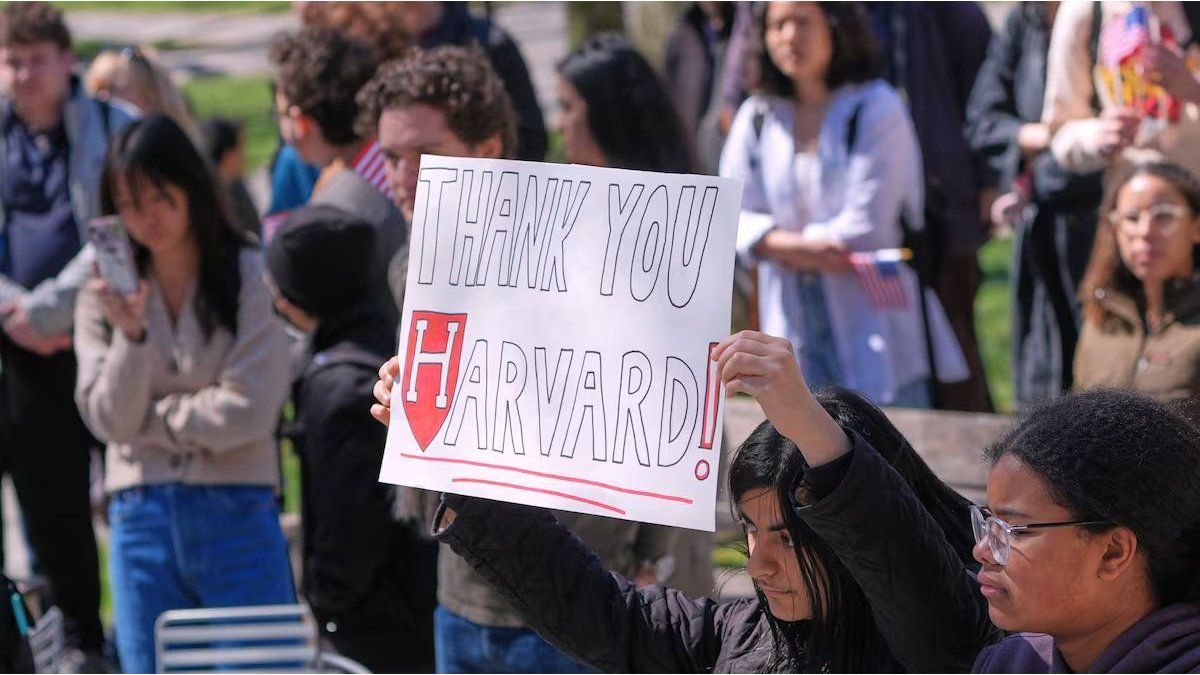What happens between Harvard and Donald Trump It is not just a problem from the United States. It is the symptom of an era: Authoritarianism fear university because it is a territory of critical thought and freedom.
Faced with the advancement of leaderships that despise knowledge, universities become white. Not for what they do, but for what they represent.
In Argentina, the situation is no different. It is not necessary to formally intervene a university to attack its autonomy. It reaches to paranatize it, with stigmatizing its teachers and students, with questioning the social value of their task. It seeks to weaken its social legitimacy and condition its role as a tool for individual and collective development.
University march.jpeg
The Federal University March grouped all the houses of high studies in defense of higher education and against the cuts of the government of Javier Milei.
Mariano Fuchilla
University autonomy is not a funny concession of the State: it is a constitutional guarantee (art. 75, inc. 19) that was born in the heat of the constituents of ’94, which understood that in it were the foundations of the future of the nation, of sustainable development, of the generation of full citizenship and stable democracy.
The university is not just an educational institution: it is a cultural counterweight against the abuses of power.
It implies the right of the academic community to govern itself, with freedom of chair, ideological pluralism and democratic participation. Your reason for being is precisely preventing the governments on duty from teaching us to teach, investigate or -peor still- what can we think.
That is why authoritarianism distrust universities. University education teaches to question, analyze and argue. That is incompatible with blind obedience demanded by authoritarianisms. Its bases are built on free debate, where different ideas can coexist, confront and discuss without a truth imposed as an absolute truth.
uba right.jpeg

The UBA, the model house worldwide.
What is at stake is deeper than a budget or administrative conflict: it is discussed if knowledge can continue to be a public good or will become a privilege conditioned by power.
The question is disturbing: Can there be republic if the right to think is not guaranteed?
The attacks are not new, but the method, in Argentina de la Libertad, has sophisticated. The university is not repressed: it is suffocated. Debates are not closed: they are caricaturized. Thought is not prohibited: it is pushed apart, accusing it of ideological, unproductive or sectarian. The figure of the internal enemy reappears with another clothing: the academic community is responsible for the ills of the present, as if thinking critically were a luxury in times of crisis.
A democracy that does not tolerate dissent, is just an administration of majorities. And a university that cannot investigate freely, does not produce knowledge: reproduces slogans.
The Argentine Public University has been the usina of critical thinkingof social ascent and the construction of a national project with a scientific basis and public sense. When attacking it, it is not attacked only to one institution: the very heart of a country model is hit.
The university reform of 1918 challenged the conservative, clerical and authoritarian power of the moment. The reform of the 1994 Constitution recognized, with strategic vision, that university autonomy should be shielded as the governing principle of national development. In both there was the same background idea: there is no free country without free universities.
We must defend its autonomy, because where it exists, there is critical thinking. And where there is critical thinking, there is reflexive citizenship, with public debate and that respects the rule of law.
In the Argentine and anywhere in the world: universities are limited to the power and bastion of freedom.
*General Secretary of the National Purple Strip
Source: Ambito
David William is a talented author who has made a name for himself in the world of writing. He is a professional author who writes on a wide range of topics, from general interest to opinion news. David is currently working as a writer at 24 hours worlds where he brings his unique perspective and in-depth research to his articles, making them both informative and engaging.




